Assassin’s Creed Origins review
An Egyptian break is just what the Creed series needed
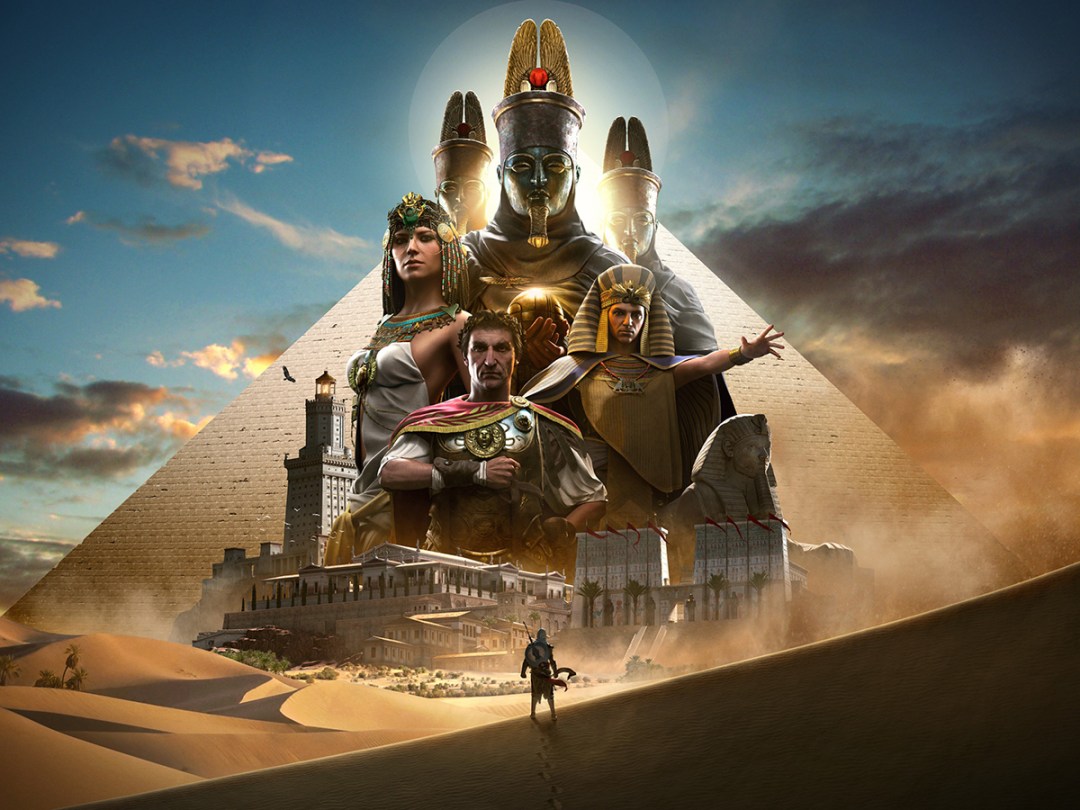
Ancient Egypt is the perfect setting for a video game with its pyramid-peppered panoramas, a dark and engrossing mythology and more corrupt leaders than you’ll find in your average governing football body.
It’s rather odd, then, that a AAA video game is yet to use Egypt for an open-world venture. Seriously, we’ve had apocalyptic worlds filled with mutants and robotic dinosaurs before anyone thought to check a history book.
Fortunately, Ubisoft has finally arranged the perfect marriage by wedding its Assassin’s Creed series to the history-rich period of Ancient Egypt. But it’s not just hieroglyphs that the AC team has been researching during its two-year hiatus.
In what’s the greatest leap of faith for the franchise yet, Ubisoft has reformed the combat, implemented a new RPG system and shifted the focus towards all-out action in expense of its renowned stealth. An ambitious move, sure, but has it helped the series to hit the mark?
Welcome to Egypt
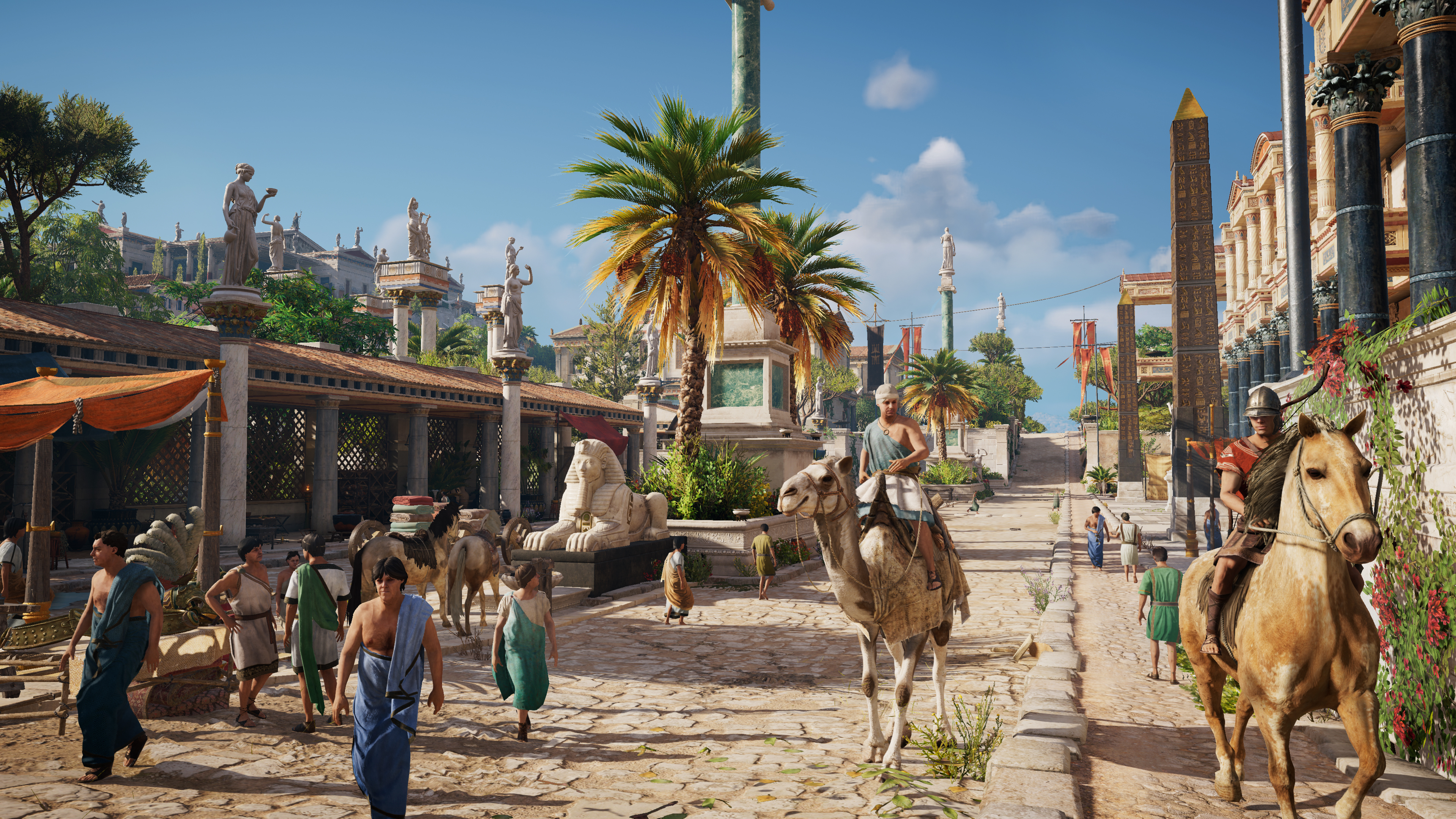
Pyramids. Sphinxes. Tutankhamun. There are enough spectacular sights here for you to simply wander the overwhelmingly large map as a touring pacifist.
It all looks spectacular, too. You can see every individual blade of grass bend as you crawl through an oasis, as well as specs of sand as you slide down dunes. And everything you can see on the horizon? It can all be explored from the lion-infested deserts to the croc-swarming seas.
There are also a number of cities to explore, from Giza to Alexandria, which perfectly capture the canyon-wide gulf between the poor and the rich. Pharaohs and priests are lavishly dressed and live in magnificent structures, while civilians wear nothing but rags and live among the farm animals.
And then there’s the gladiator arenas, hippodrome races and the underground tombs that all flesh out the vibrant character of Ancient Egypt. Few times before has AC managed to establish its setting to such a high pedigree.
The last Medjay
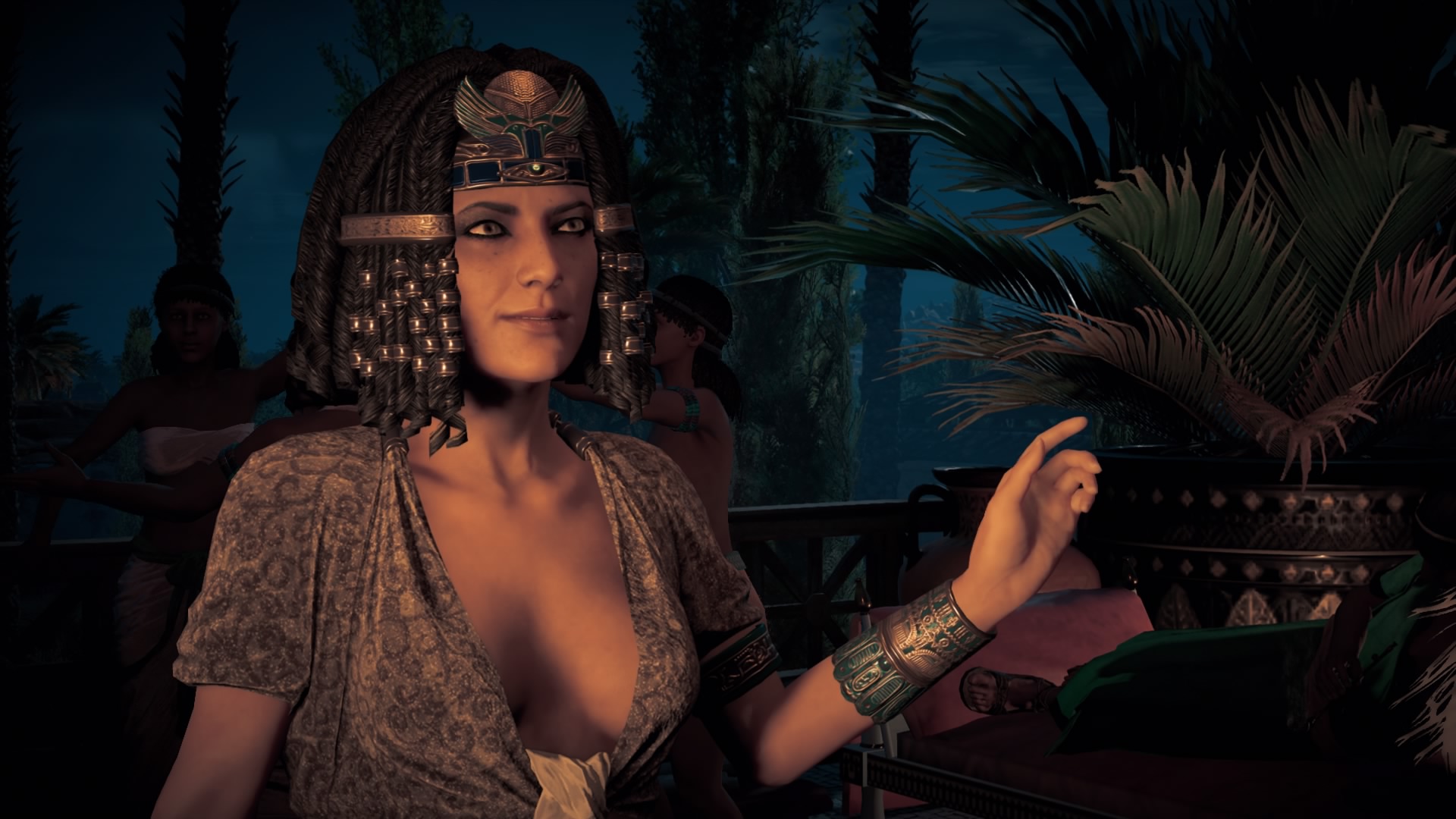
With the bounty of potential that Egypt offers in terms of story, I was disappointed with what Origins has to offer. You can’t fault Ubisoft for not going big, with epic scale wars and appearances from history-defining figures such as Cleopatra and Julius Caesar. It’s the more personal stories and original characters that struggle to deliver.
You assume control of a Medjay (aka Egyptian mega-soldier) called Bayek who sets out to get revenge on his son’s murderer. Sadly, he’s a rather bland character, only showing flashes of emotion despite the turmoil he’s experiencing. He is far from the standards of previous Creed protagonists such as Ezio and Edward Kenway.
Rather frustratingly, Ubisoft has the perfect alternative to Bayek staring you right in the face. Aya is just as much of a capable assassin as her husband Bayek and arguably shows a more compelling story arc. While frequently showing fits of raw rage, she fixates on the politics of Egypt in order to suppress her emotions. The few occasions where you do get to play as Aya always left me wishing that she had a more central role.
The story had minimal memorable moments, while pacing was more limp than a wounded camel in the first twenty hours, and then as speedy as a clumsy gazelle in the latter act. It’s not helped that the modern-day Animus story rears its ugly head occasionally, although admittedly it’s watered down considerably compared to previous AC installments.
Look before you creep
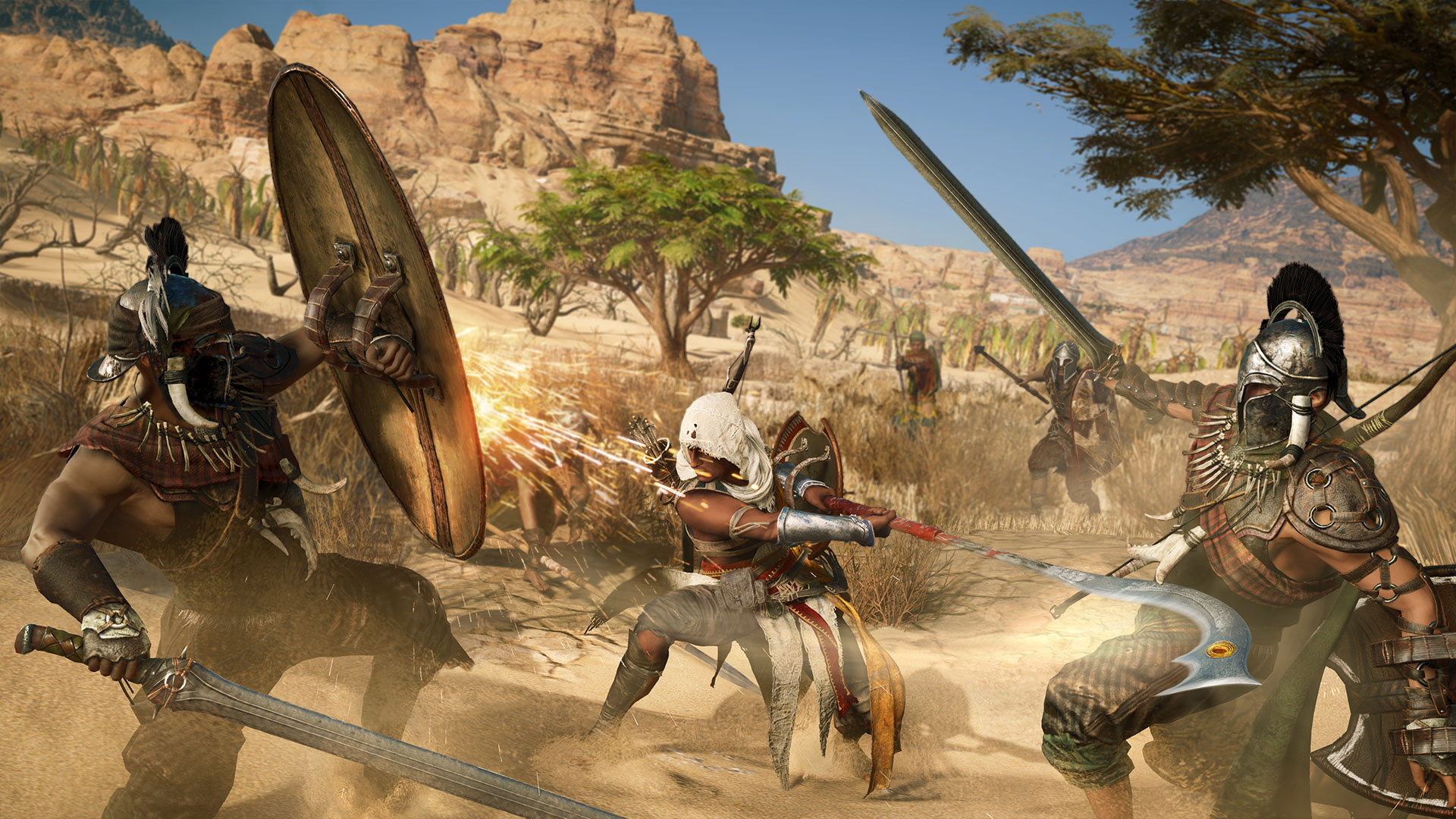
Having swapped the claustrophobic city life of recent Creed games for the sweeping desert vistas of Ancient Egypt, there are fewer opportunities to climb up towers and skulk in alleyways. This means there’s now less of a focus on stealth.
That doesn’t mean you can’t take the sneak and stab option, but it’s certainly more difficult. Thanks to a new RPG system, yourself and every single enemy has an assigned numerical level representing their strength and difficulty to kill. Try and stealthily assassinate a superior-leveled guard in the back and they’ll likely survive and bash your skull in with a mace.
There is a way around this. By collecting resources such as bronze, wood and animal skins you can upgrade your gear, including your hidden blade so it deals more damage. Or you could simply complete a number of side missions to ensure your level is always higher than the mission’s recommend figure. Grinding can be a bit of a slog, but the rewards of new weapons and unlockable abilities are usually worth it.
Saying that, there are a number of occasions where stealth isn’t even an option. Some of your major targets can only be killed in a one-on-one encounter that’s essentially a boss battle, particularly when thrown into a gladiator-style brawl. It’s a good job, then, that the new combat system is one of best aspects of Origins.
Gladiator
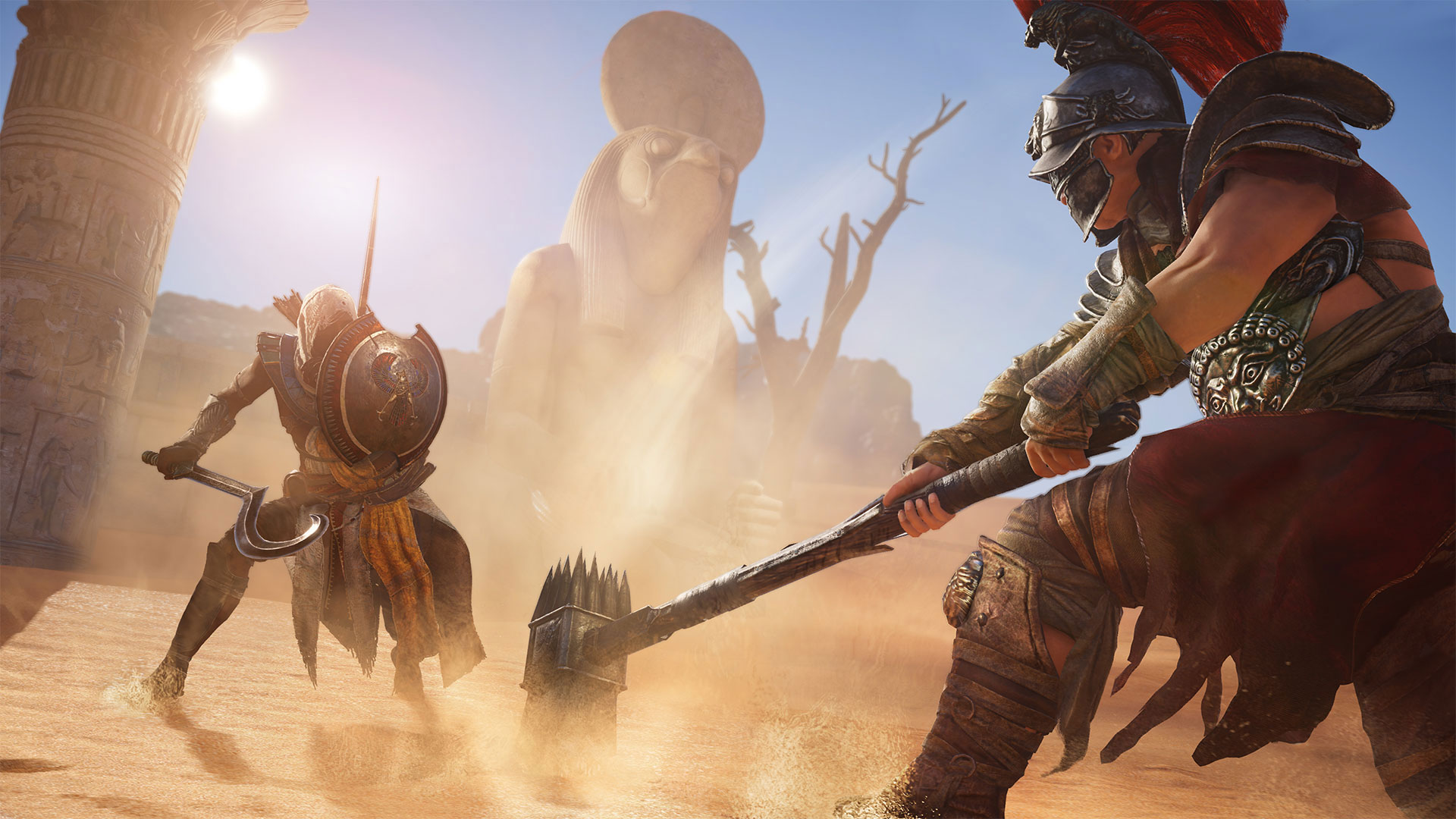
Assassin’s Creed’s combat mechanics have been completely revamped with light and heavy attacks mapped to your right-shoulder triggers, and a shield-based block placed on the top-left trigger. It’s now a lot more tactical than previous games, where you could fend off several guards with nothing but a combo-boosted cutlass.
As a result, combat feels substantially more realistic and challenging. Time your move wrong and your average grunt could easily lop your head off. You’ll have to adopt a far greater reliance on blocks, counter-attacks and Witcher-style dodges than in previous Creed titles, but this just makes it more engrossing and entertaining. My only issue? The targeting system can be rather awkward when switching focus to another enemy.
You get a greater range of weapons in return too. Use dual blades for quick, but less damage-inducing strikes, or perhaps use an axe for slower but more lethal attacks. There’s even a large selection of bow types to choose from, with the warrior bow firing three arrows at time for massive damage, and the hunter’s bow proving a more accurate option.
You’ll loot these weapons from fallen enemies or hidden treasure boxes. Find a legendary weapon and they’ll have powerful traits and abilities. My personal favourites were a shield that sent an enemy to sleep after a successful block and a sword that poisoned your foes in true Oberyn Martell fashion.
Assassin’s Creed Origins verdict
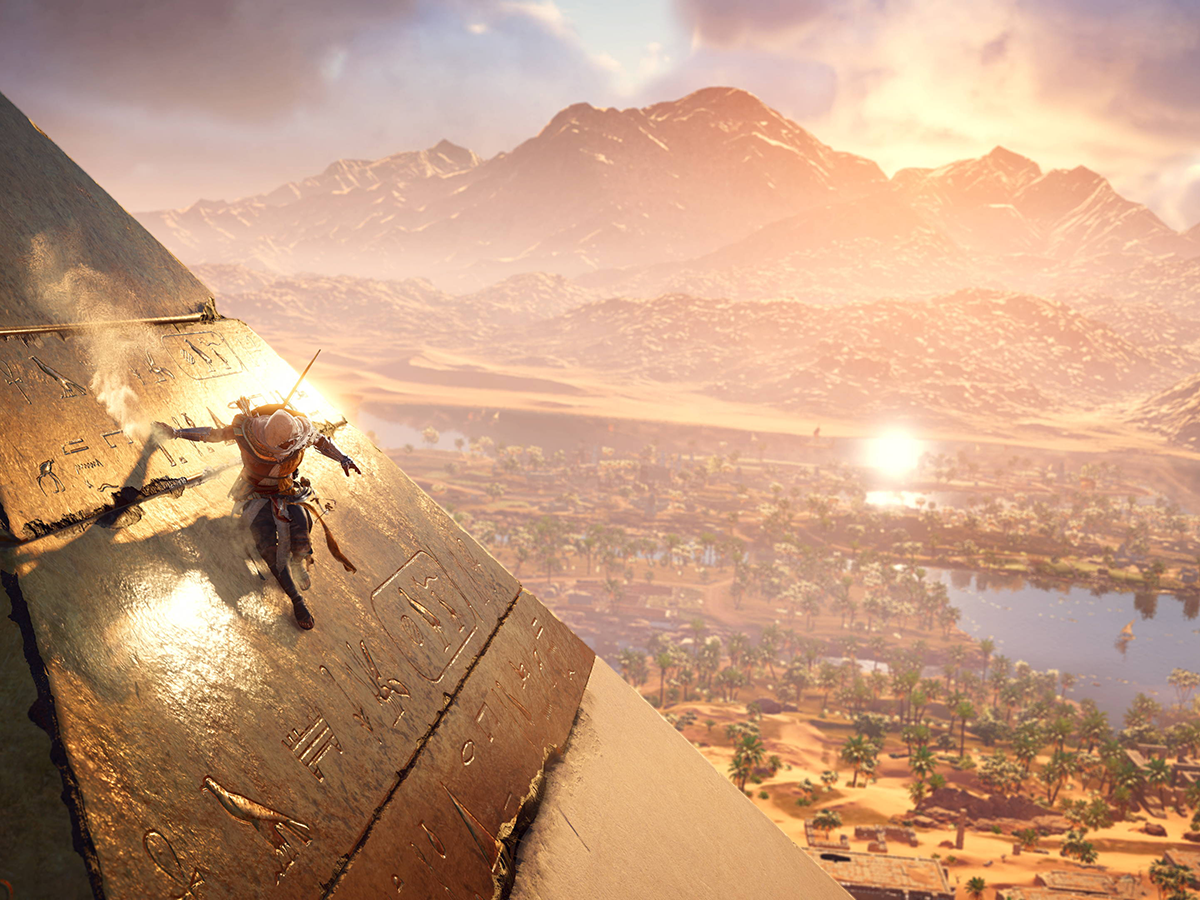
It’s abundantly clear that Origins has taken inspiration from many other modern games. The increasingly trendy combat system looks to be adopted from the likes of Dark Souls and The Witcher 3, the crafting reminiscent of Ubisoft’s own Far Cry franchise and the new scouting ability, courtesy of your trusty eagle companion Senu, is essentially an adaptation of Watchdogs‘ drone spying.
There’s nothing at all wrong with blending together a compendium of techniques from previous games – it’s expected, in fact. The problem with Origins, though, is it doesn’t really bring anything new to the table. Despite being set in Ancient Egypt and being a massive upgrade on previous AC titles, I still couldn’t shake the feeling that I’ve seen and done everything here before.
But while it doesn’t quite meet the lofty open-world expectations set by the likes of Horizon Zero Dawn and Breath of the Wild, it’s still up there as one of the best Assassin’s Creed games to date.
Sure, some loyal Creed fans may feel disgruntled by the departure from stealth, but the improved combat and enthralling Egypt setting are both signs that the series has finally found its footing again.
Where to buy
Stuff Says…
The best Assassin’s Creed in yonks, but it’s not quite the pharaoh of open-world games
Good Stuff
Egypt is rich in detail and content
Combat has drastically improved
A deep RPG system and addictive looting
Bad Stuff
Few unique selling points
Boring characters and an unmemorable story



